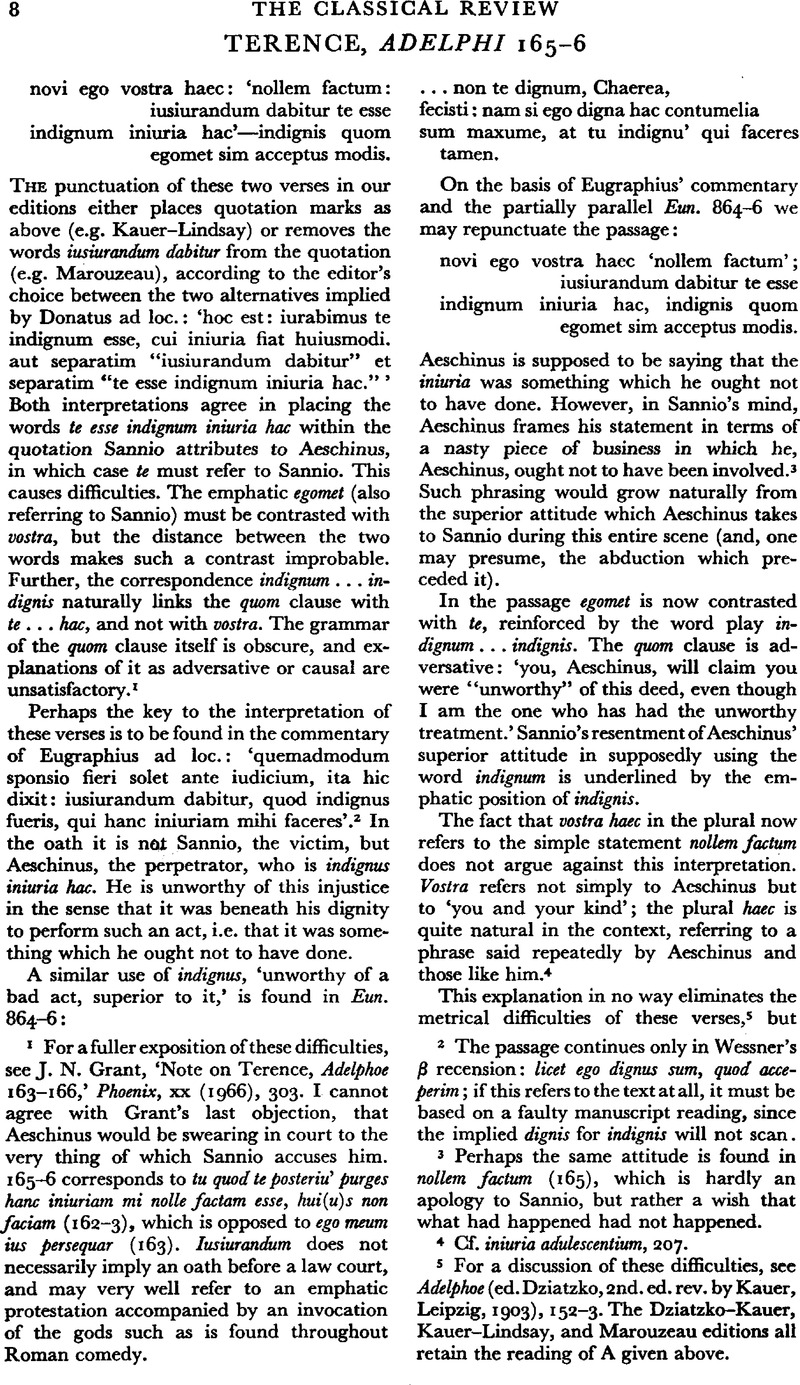Published online by Cambridge University Press: 27 February 2009

1 For a fuller exposition of these difficulties, see J. N. Grant, ‘Note on Terence, Adelphoe 163–166,’ Phoenix, xx (1966), 303. I cannot agree with Grant's last objection, that Aeschinus would be swearing in court to the very thing of which Sannio accuses him. 165–6 corresponds to tu quod te posteriu' purges hanc iniuriam mi nolle factam esse, hui(u)s non faciam (162–3), which is opposed to ego meum ius persequar (163). Iusiurandum does not necessarily imply an oath before a law court, and may very well refer to an emphatic protestation accompanied by an invocation of the gods such as is found throughout Roman comedy.
2 The passage continues only in Wessner's β recension: licet ego dignus sum, quod acceperim; if this refers to the text at all, it must be based on a faulty manuscript reading, since the implied dignis for indignis will not scan.
page 8 note 3 Perhaps the same attitude is found in nollem factum (165), which is hardly an apology to Sannio, but rather a wish that what had happened had not happened.
page 8 note 4 Cf. iniuria adulescentium, 207.
page 8 note 5 For a discussion of these difficulties, see Adelphoe (ed. Dziatzko, 2nd. ed. rev. by Kauer, Leipzig, 1903), 152–3. The Dziatzko–Kauer, Kauer–Lindsay, and Marouzeau editions all retain the reading of A given above.